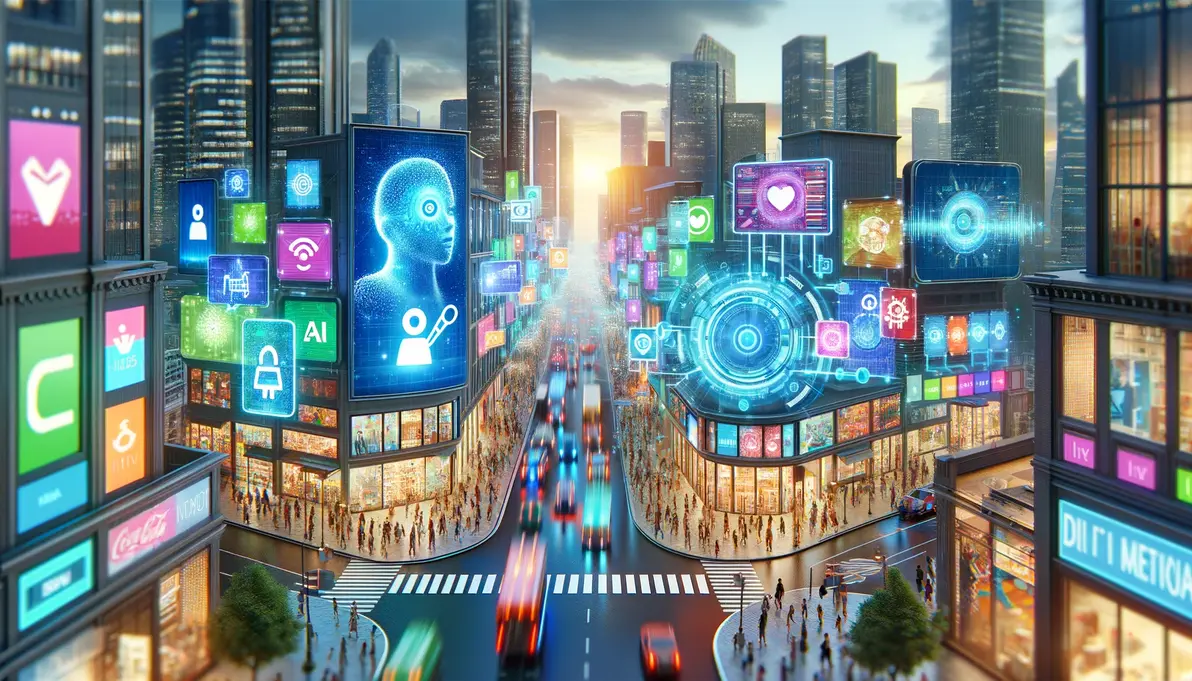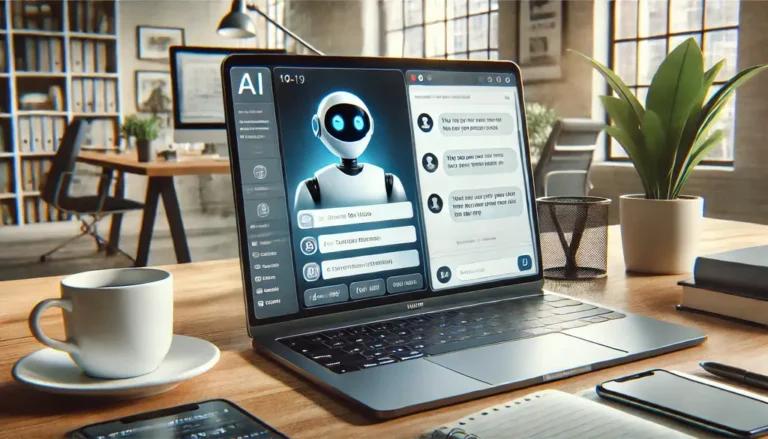Imagine a world where your digital marketing efforts are not just about keywords and ad placements, but about creating an engaging, almost intuitive experience for your customers. This isn’t a glimpse into the distant future; it’s the transformative reality of AI in digital marketing today.
From predictive analytics to personalized customer experiences, AI is not just reshaping the landscape; it’s redefining the very essence of how we connect with our audiences.
In this comprehensive analysis, we’ll dive deep into the ways AI is revolutionizing digital marketing. We’ll explore the innovations, the challenges, and the future potential of this dynamic duo.
Whether you’re a marketer, a business owner, or simply an AI enthusiast, this journey will illuminate the path of digital marketing in an AI-driven world.
Revolutionizing Customer Experiences
AI has fundamentally changed the game when it comes to customer experiences. By harnessing the power of machine learning and data analytics, businesses can now deliver personalized content that resonates with the individual preferences of each customer.
This level of personalization goes beyond mere product recommendations; it extends to customized content, tailored email marketing campaigns, and even personalized website experiences.
The impact of such personalization is profound. Customers feel understood and valued, leading to increased engagement and loyalty. For businesses, this translates into higher conversion rates and a significant boost in ROI.
Moreover, AI-driven insights help marketers understand customer behavior patterns, enabling them to anticipate needs and preferences, thereby fostering a proactive rather than reactive approach to customer engagement.
Enhancing Content Creation and Strategy
Content is the cornerstone of digital marketing, and AI is redefining how this content is created, distributed, and optimized. AI tools can now analyze vast amounts of data to identify trends and insights, helping marketers create content that truly resonates with their target audience.
From generating blog post ideas to optimizing headlines for higher engagement, AI is making content creation more efficient and effective.
Furthermore, AI is enabling a more strategic approach to content distribution. By analyzing user engagement across various channels, AI can help marketers determine the best times and platforms for content distribution, maximizing visibility and engagement.
This data-driven approach ensures that marketing efforts are not just creative but also strategic and impactful.
Transforming Ad Targeting and Optimization
AI’s impact on ad targeting and optimization is nothing short of revolutionary. With AI, marketers can now target their ads with unprecedented precision, reaching the right audience at the right time with the right message.
This is achieved through sophisticated algorithms that analyze user behavior, preferences, and engagement patterns.
Moreover, AI continuously optimizes ad campaigns in real-time, adjusting parameters to ensure maximum ROI. This dynamic approach to ad optimization means that campaigns are constantly refined and improved, leading to better performance and lower acquisition costs.
Predictive Analytics and Decision Making
Predictive analytics is perhaps one of the most exciting applications of AI in digital marketing. By analyzing historical data, AI can predict future trends, customer behaviors, and market dynamics.
This predictive power enables marketers to make informed decisions, anticipate market shifts, and stay ahead of the competition.
Predictive analytics can also help in identifying potential high-value customers, optimizing pricing strategies, and even predicting the success of marketing campaigns before they are launched.
This forward-looking approach not only enhances the effectiveness of marketing efforts but also significantly reduces risks and uncertainties.
The Future of AI in Digital Marketing
As we look to the future, the potential of AI in digital marketing is boundless. With advancements in natural language processing, we can expect even more personalized and conversational interactions with customers.
Augmented reality and AI could merge to offer immersive brand experiences, and the integration of AI with IoT devices could open new avenues for contextual marketing.
However, the future also presents challenges, particularly in the realms of privacy and ethical considerations. As AI becomes more ingrained in digital marketing, businesses must navigate these challenges carefully, ensuring that they leverage AI’s power responsibly and transparently.
Conclusion
The impact of AI on digital marketing is profound and far-reaching. It’s not just about automation or efficiency; it’s about creating more meaningful, personalized, and engaging experiences for customers.
As we embrace this AI-driven era, the possibilities are as vast as our imagination. The future of digital marketing is not just digital; it’s distinctly intelligent.







